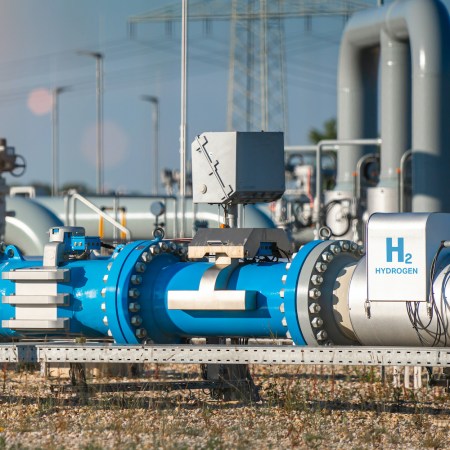As demand for green energy has grown, there’s been a lot of attention focused on what role hydrogen might play in the years to come. In a 2023 explainer for The Guardian, Nina Lakhani took a clear-eyed look at the state of hydrogen production, writing that “it takes more energy to produce, store and transport hydrogen than it provides when converted into useful energy.”
That begs the question: what if there was an easier way to generate hydrogen? This week, the journal Nature Reviews Earth & Environment published a paper that reckoned with that very question. Titled “Natural hydrogen resource accumulation in the continental crust,” the paper sought to, in its authors’ words, “explore the conditions that enable the development of natural hydrogen resources in the geological subsurface.”
This paper explores two facets of hydrogen: the ways in which is can be naturally generated and whether that process leads to the resulting hydrogen being stored somewhere that might be easily accessed. The results of this study were mixed, with the scientists’ finding that while “large accumulations of hydrogen are feasible, it is likely that very high concentrations of hydrogen (such as that found in Mali) will be exceptional.”
Green Spaces Have Become Big Business in Scotland
It’s made for a complex situationIn an article at Live Science, Sascha Pare explored the researchers’ findings in (no pun intended) depth. The University of Oxford’s Chris Ballentine — the paper’s lead author — noted that a number of companies are looking into where hydrogen deposits might be found. Ballentine also told Live Science that certain types of geological activity “helps to bring the hydrogen to the near surface where it might accumulate and form a commercial resource.”
There’s still a lot scientists don’t know about where hydrogen might be — but, as Pare pointed out, this paper’s findings “should make it easier to hunt for reservoirs.” While a lot remains undetermined, this represents a significant step forward in the search for more accessible sources of hydrogen.
This article appeared in an InsideHook newsletter. Sign up for free to get more on travel, wellness, style, drinking, and culture.



















